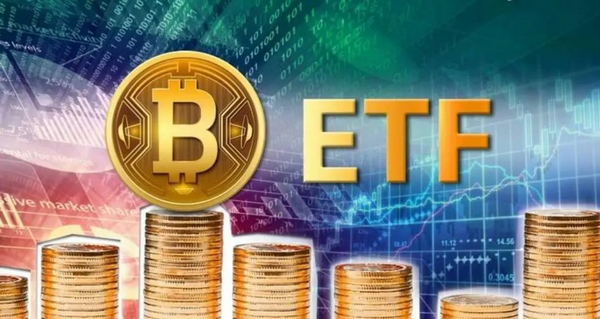-
 Bitcoin
Bitcoin $84,399.2223
1.14% -
 Ethereum
Ethereum $1,590.7544
-0.15% -
 Tether USDt
Tether USDt $0.9999
0.01% -
 XRP
XRP $2.0840
-0.37% -
 BNB
BNB $584.2779
0.68% -
 Solana
Solana $132.2389
4.85% -
 USDC
USDC $0.9998
-0.01% -
 TRON
TRON $0.2465
-1.94% -
 Dogecoin
Dogecoin $0.1564
1.22% -
 Cardano
Cardano $0.6153
-0.01% -
 UNUS SED LEO
UNUS SED LEO $9.3819
0.42% -
 Chainlink
Chainlink $12.4646
0.67% -
 Avalanche
Avalanche $18.9384
-0.03% -
 Toncoin
Toncoin $2.9427
2.16% -
 Stellar
Stellar $0.2372
0.49% -
 Shiba Inu
Shiba Inu $0.0...01194
1.86% -
 Sui
Sui $2.0737
-1.45% -
 Hedera
Hedera $0.1578
0.15% -
 Bitcoin Cash
Bitcoin Cash $327.7507
2.67% -
 Litecoin
Litecoin $74.9490
-1.23% -
 Polkadot
Polkadot $3.5793
0.93% -
 Hyperliquid
Hyperliquid $16.1469
6.39% -
 Dai
Dai $1.0001
0.01% -
 Bitget Token
Bitget Token $4.3160
1.37% -
 Ethena USDe
Ethena USDe $0.9992
0.01% -
 Pi
Pi $0.6121
-1.86% -
 Monero
Monero $218.6484
0.72% -
 Uniswap
Uniswap $5.2073
-0.48% -
 OKB
OKB $51.7154
-1.12% -
 Pepe
Pepe $0.0...07166
1.23%
What are the advantages of investing in a Bitcoin ETF?
For those seeking exposure to Bitcoin without direct management or heightened volatility, Bitcoin ETFs provide a regulated, diversified, and accessible investment option.
Oct 31, 2024 at 02:29 am

Advantages of Investing in a Bitcoin ETF
- Exposure to Bitcoin without Complexity: Bitcoin ETFs offer a convenient way to gain exposure to the cryptocurrency without managing private keys or navigating cryptocurrency exchanges.
- Reduced Volatility: ETFs are designed to diversify risk by investing in a basket of assets. This approach can reduce volatility compared to holding Bitcoin directly.
- Simplified Trading: Bitcoin ETFs can be traded on traditional stock exchanges, making it accessible to a wider range of investors.
- Regulatory Oversight: ETFs are subject to regulatory oversight, which provides investors with a level of protection.
- Lower Fees: ETFs typically have lower fees than trading Bitcoin directly, as they pool the assets of multiple investors.
- Increased Liquidity: ETFs offer greater liquidity compared to Bitcoin, which can make it easier to buy or sell shares at a fair price.
- Potential Tax Advantages: In some jurisdictions, ETF investments may be eligible for tax advantages compared to holding Bitcoin directly.
- Access to Institutional Investors: ETFs allow institutional investors, such as funds and pension plans, to allocate a portion of their portfolio to Bitcoin.
- Diversification within a Portfolio: Bitcoin ETFs can further diversify a cryptocurrency portfolio by providing exposure to a specific type of cryptocurrency (e.g., Bitcoin) without investing heavily in a single asset.
- Long-Term Growth Potential: Bitcoin has demonstrated a strong performance record in the long run, and ETFs offer investors the opportunity to participate in its potential for growth over time.
Disclaimer:info@kdj.com
The information provided is not trading advice. kdj.com does not assume any responsibility for any investments made based on the information provided in this article. Cryptocurrencies are highly volatile and it is highly recommended that you invest with caution after thorough research!
If you believe that the content used on this website infringes your copyright, please contact us immediately (info@kdj.com) and we will delete it promptly.
- Charts💹 reveals $ETH potentials
- 2025-04-17 10:15:25
- The Next Big Best Cryptocurrency to Buy This Month and Why These 4 Projects Are Popping Up on Analyst Watchlists
- 2025-04-17 10:15:25
- Bitcoin May Be Riding a Wave of Volatility in 2025
- 2025-04-17 10:10:17
- Eric Trump and Asher Genoot to Make First On-Stage Appearance for American Bitcoin at Consensus 2025
- 2025-04-17 10:10:17
- Bitcoin Is Now a Safe Haven, Its Proponents Say
- 2025-04-17 10:05:26
- XRP Has Regained Market Attention Following the Recent Slash in Ripple's Penalty by the SEC
- 2025-04-17 10:05:26
Related knowledge

What is the difference in returns between long-term holding of a Bitcoin ETF and holding Bitcoin directly?
Apr 09,2025 at 04:15am
When considering the difference in returns between long-term holding of a Bitcoin ETF and holding Bitcoin directly, it's essential to understand the nuances and factors that affect each investment option. Both approaches have their unique advantages and potential drawbacks, which can significantly impact the overall returns over time. Understanding Bitc...

How is the "roll cost" of a futures Bitcoin ETF generated?
Apr 08,2025 at 01:22pm
The 'roll cost' of a futures Bitcoin ETF is a critical concept for investors to understand, as it directly impacts the performance of the ETF. In this article, we will delve into the mechanics of how the roll cost is generated, exploring the underlying processes and factors that contribute to this cost. Understanding Futures ContractsFutures contracts a...

How can the premium or discount of a Bitcoin ETF be narrowed through an arbitrage mechanism?
Apr 09,2025 at 12:07am
Arbitrage mechanisms play a crucial role in narrowing the premium or discount of a Bitcoin Exchange Traded Fund (ETF). Understanding how these mechanisms work can provide valuable insights into the dynamics of Bitcoin ETFs and their relationship with the underlying asset. This article will delve into the specifics of how arbitrage can be used to align t...

What factors affect the bid-ask spread of a Bitcoin ETF?
Apr 08,2025 at 08:50pm
The bid-ask spread of a Bitcoin Exchange Traded Fund (ETF) is a critical metric that investors and traders closely monitor. It represents the difference between the highest price a buyer is willing to pay (bid) and the lowest price a seller is willing to accept (ask). Several factors influence this spread, and understanding them can help investors make ...

How is the seed capital of a Bitcoin ETF used?
Apr 10,2025 at 02:15pm
The seed capital of a Bitcoin ETF plays a crucial role in the establishment and operation of the fund. This initial investment is used to create the fund's underlying assets, manage operational costs, and ensure the ETF can start trading on an exchange. Understanding how this seed capital is utilized provides insight into the mechanics of Bitcoin ETFs a...

What is the difference between "physically backed" and "synthetic" Bitcoin ETFs in terms of holding assets?
Apr 10,2025 at 04:56pm
Bitcoin Exchange Traded Funds (ETFs) have become a popular way for investors to gain exposure to the cryptocurrency market without directly owning the underlying asset. There are two primary types of Bitcoin ETFs: physically backed and synthetic. Understanding the differences between these two types, particularly in terms of how they hold assets, is cru...

What is the difference in returns between long-term holding of a Bitcoin ETF and holding Bitcoin directly?
Apr 09,2025 at 04:15am
When considering the difference in returns between long-term holding of a Bitcoin ETF and holding Bitcoin directly, it's essential to understand the nuances and factors that affect each investment option. Both approaches have their unique advantages and potential drawbacks, which can significantly impact the overall returns over time. Understanding Bitc...

How is the "roll cost" of a futures Bitcoin ETF generated?
Apr 08,2025 at 01:22pm
The 'roll cost' of a futures Bitcoin ETF is a critical concept for investors to understand, as it directly impacts the performance of the ETF. In this article, we will delve into the mechanics of how the roll cost is generated, exploring the underlying processes and factors that contribute to this cost. Understanding Futures ContractsFutures contracts a...

How can the premium or discount of a Bitcoin ETF be narrowed through an arbitrage mechanism?
Apr 09,2025 at 12:07am
Arbitrage mechanisms play a crucial role in narrowing the premium or discount of a Bitcoin Exchange Traded Fund (ETF). Understanding how these mechanisms work can provide valuable insights into the dynamics of Bitcoin ETFs and their relationship with the underlying asset. This article will delve into the specifics of how arbitrage can be used to align t...

What factors affect the bid-ask spread of a Bitcoin ETF?
Apr 08,2025 at 08:50pm
The bid-ask spread of a Bitcoin Exchange Traded Fund (ETF) is a critical metric that investors and traders closely monitor. It represents the difference between the highest price a buyer is willing to pay (bid) and the lowest price a seller is willing to accept (ask). Several factors influence this spread, and understanding them can help investors make ...

How is the seed capital of a Bitcoin ETF used?
Apr 10,2025 at 02:15pm
The seed capital of a Bitcoin ETF plays a crucial role in the establishment and operation of the fund. This initial investment is used to create the fund's underlying assets, manage operational costs, and ensure the ETF can start trading on an exchange. Understanding how this seed capital is utilized provides insight into the mechanics of Bitcoin ETFs a...

What is the difference between "physically backed" and "synthetic" Bitcoin ETFs in terms of holding assets?
Apr 10,2025 at 04:56pm
Bitcoin Exchange Traded Funds (ETFs) have become a popular way for investors to gain exposure to the cryptocurrency market without directly owning the underlying asset. There are two primary types of Bitcoin ETFs: physically backed and synthetic. Understanding the differences between these two types, particularly in terms of how they hold assets, is cru...
See all articles























































































